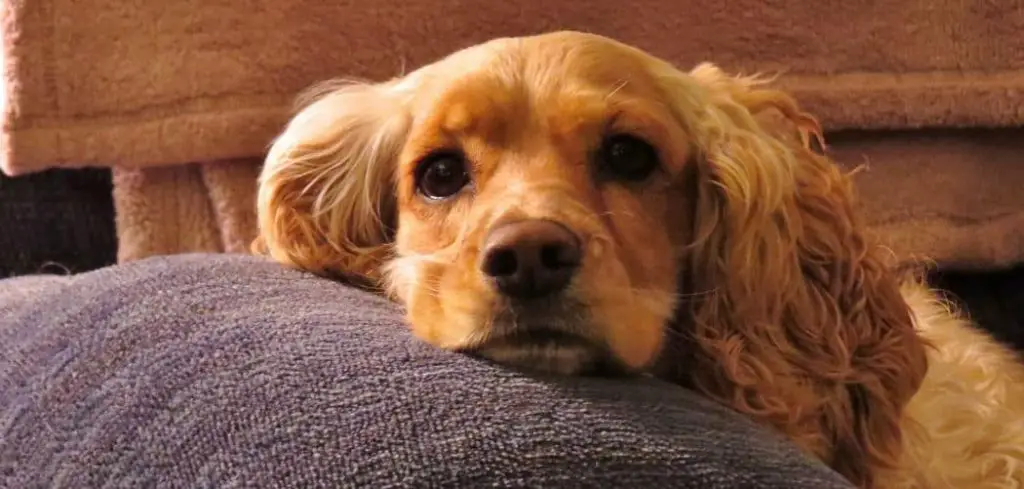It can be worrying to notice your dog has loose stool, even if they seem otherwise healthy and full of energy.
Many dog owners are left wondering if it’s something minor that will resolve on its own or if it points to a deeper issue.
When a dog is acting normal but experiencing digestive upset, it can be tricky to know how seriously to take it.
We outline the common causes of a dog having loose stool but otherwise acting normal, what you can do at home, and when to seek veterinary help.
Table of Contents
Dog Loose Stool But Acting Normal — Why It Happens
Loose stool in dogs who otherwise appear healthy can often be linked to mild digestive disturbances, dietary changes, or stress. Dogs may develop softer stools after eating something unusual, experiencing anxiety, or undergoing a minor intestinal imbalance.
Sometimes, parasites or infections can also cause loose stool before other symptoms develop.
While your dog may appear playful and alert, their digestive system may still be working through an irritation or imbalance.

Dog Loose Stool But Acting Normal: Common Causes
Dietary Indiscretion
One of the most common reasons dogs develop loose stool is dietary indiscretion, which simply means eating something they shouldn’t.
This could be table scraps, spoiled food from the trash, or even grass and sticks during a walk.
When a dog consumes something unusual, their digestive system may react by producing softer or runny stool.
Because the rest of their body isn’t affected, they often continue acting completely normal. While it may resolve on its own, frequent episodes can indicate a recurring problem that needs to be addressed.
Read more: Dog Loose No other Symptoms (Why it happens and what to do)
Sudden Food Changes
Dogs have sensitive digestive systems, and even a simple switch to a new kibble or brand of treats can upset the gut. A sudden change often causes loose stool while the body adjusts.
Unlike food allergies, which may trigger skin irritation or ongoing digestive distress, food transitions usually only affect stool consistency.
If your dog seems happy, eats normally, and only has loose stool, a recent diet change is a likely cause.
Stress or Anxiety
Just like humans, dogs can experience stress-related digestive issues. Boarding, moving homes, the arrival of a new pet, or even loud noises can disrupt their normal digestion.
Stress triggers hormonal changes that may cause the intestines to work faster, leading to loose stool.
Dogs often remain playful and affectionate despite this, so the only sign you notice may be softer bowel movements.
Intestinal Parasites
Parasites such as giardia, roundworms, or hookworms can cause intermittent loose stool in dogs. In the early stages, your dog may act completely normal, eat well, and maintain their energy levels.
Over time, however, untreated parasites can lead to weight loss, a dull coat, or more severe gastrointestinal upset.
That’s why stool testing is recommended if loose stool persists for more than a few days, even if your dog otherwise appears fine.
Mild Bacterial or Viral Infection
Dogs frequently pick up mild infections through contaminated food, water, or contact with other dogs. Some bacterial or viral infections may start with loose stool while the dog continues to appear bright and healthy.
In these cases, the immune system may fight off the infection quickly. However, some infections can worsen, so ongoing monitoring is important to ensure additional symptoms don’t develop.
Food Sensitivities or Intolerances
Some dogs develop sensitivities to certain proteins, grains, or additives in their food. These sensitivities don’t always cause dramatic illness — sometimes the only symptom is frequent loose stool.
Because the dog remains otherwise happy and playful, owners often overlook food intolerances as the cause. A veterinary diet trial may help determine if a food intolerance is responsible.
What to Do If Your Dog Has Loose Stool But Is Acting Normal
If your dog seems perfectly fine aside from loose stool, you can often manage the situation at home in the short term.
Start by withholding food for about 12 hours to give the gut a rest, but always provide fresh water. Afterward, feed a bland diet such as boiled chicken and rice in small portions to ease digestion.
Keep a close eye on your dog’s energy levels, appetite, and hydration. Monitor their stool consistency over the next couple of days. If it begins to firm up, you may gradually reintroduce their regular food.
Probiotics designed for dogs can also help restore healthy gut bacteria and improve stool quality.
Avoid giving treats, fatty foods, or table scraps until the issue resolves. If stress seems to be the trigger, provide a calm environment and minimize sudden changes in routine.
When to Call or Visit Your Vet
Loose stool that lasts more than a few days, even in an otherwise normal-acting dog, deserves a vet visit. Persistent digestive issues may point to parasites, food intolerances, or early signs of infection.
You should also seek veterinary care right away if your dog’s loose stool is accompanied by blood, mucus, vomiting, loss of appetite, or lethargy. These symptoms indicate a more serious condition that requires immediate attention.
Puppies, senior dogs, and dogs with existing health conditions should always be checked sooner, as they are more vulnerable to dehydration and complications.
Read more: Dog Loose Stool After Boarding (Explained)
Key Takeaway
Loose stool in dogs that otherwise seem healthy is often caused by mild digestive upset, food changes, stress, or minor infections.
While it may resolve on its own, it’s important to monitor your pet closely and provide supportive care at home.
If the issue continues for several days, worsens, or is accompanied by concerning symptoms, contacting your veterinarian is the safest step. With timely care, most dogs recover quickly and return to normal bowel habits without complications.
